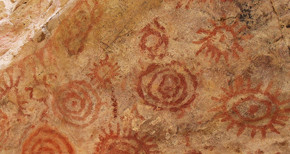SAA Statement on Collaboration with Responsible and Responsive Stewards of the Past (2018)
In the United States there are many people with an enthusiastic interest in archaeology who are not professionally trained archaeologists. These include people who collect artifacts legally (for example, from private land with permission of the landowner) or who own legacy collections that have been inherited from family members. These and other examples of legal artifact collectors and collection owners, referred to here as “responsible and responsive stewards,” are generally knowledgeable and eager to learn more about artifacts and archaeology and to willingly share their knowledge with archaeologists.
With this document, the SAA encourages collaboration between archaeologists and “responsible and responsive stewards” (RRS) in ways that do not conflict with the professional ethical principles and codes that archaeologists have pledged to uphold. This position statement gives five recommendations for promoting collaboration between archaeologists and RRS of the past. What RRS have in common—with each other and with archaeologists—is their interest in archaeology and history and their recognition of artifacts as physical manifestations of their shared humanity with past people.
The SAA’s “Principles of Archaeological Ethics” state that archaeologists have a responsibility to promote public understanding and support for the long-term preservation of the archaeological record. Recognizing that RRS are a large and diverse group of people with an interest in archaeology, archaeologists should develop positive relationships that promote understanding and support for the preservation of the archaeological record. To achieve a positive relationship between archaeologists and RRS, both communities need to approach prospective collaboration with a mutual sense of respect and genuine interest in learning from each other. Archaeologists have much to gain by working with indigenous communities, avocational archaeologists, and RRS in preserving, protecting, and documenting archaeological sites and collections.
Premises to the Recommendations
- Nothing in this document or the recommendations that follow suggests that archaeologists should breach the principles and codes of ethics that they have pledged to uphold through SAA, Register of Professional Archaeologists, or other professional organizations.
- The Society for American Archaeology does not encourage anyone to begin or continue collecting artifacts from archaeological sites. At the same time, the SAA recognizes that, in the United States, many individuals have legally collected or possess artifacts and are willing to share these with interested professionals, and that archaeologists have much to learn when this occurs.
- The SAA does not condone the excavation of any archaeological site that is not conducted in accordance with all applicable laws, under the supervision of a qualified archaeologist, and in compliance with the SAA Principles of Archaeological Ethics and other applicable codes of conduct and standards of research performance.
- The SAA eschews the collection or disturbance of any objects or remains associated with a human grave or burial that is not legally permitted and conducted under the direct supervision of a qualified archaeologist in compliance with the SAA and other applicable codes of conduct and standards of research performance.
Recommendations
The Society for American Archaeology promotes the following practices in the United States:- Provide education for archaeologists and archaeology students regarding the importance of privately held collections as potential sources of information about sites and the irreplaceable loss of this information when responsible and responsive stewards are ignored or treated disrespectfully.
- Where possible, encourage responsible and responsive stewards to work with a professional or avocational archaeologist to record and document sites and collections and to enter that information into the state archaeologist’s or State Historic Preservation Office files.
- To capture archaeological data that may otherwise be permanently lost, encourage the development of national databases of documented and analyzed privately held and legally acquired collections, akin to those developed in England and Wales through their Portable Antiquities schemes.
- Encourage responsible and responsive stewards to donate their documented collections to an appropriate museum or public curation facility. If donation is not feasible, teach responsible and responsive stewards best curation practices so that they can provide maximum protection for collections.
- Encourage responsible and responsive stewards to join organizations and programs that provide training to increase their archaeological knowledge and skills and make it easier for them to share their knowledge with archaeologists.
For discussion of the process of creating this statement, see:
Pitblado, Bonnie L., Michael J. Shott, Scott Brosowske, Virginia L. Butler, Jim Cox, Chris Espenshade, Angela J. Neller, Giovanna M. Peebles, Guadalupe Sánchez, Richard Shipley, Rafael Suárez, and Suzie Thomas
2018 Process and Outcomes of the SAA “Professional Archaeologists, Avocational Archaeologists, and Responsible Artifact Collectors Relationships Task Force” (2015–2018) [PDF 2.6 MB]. The SAA Archaeological Record 18(5):14-17.



